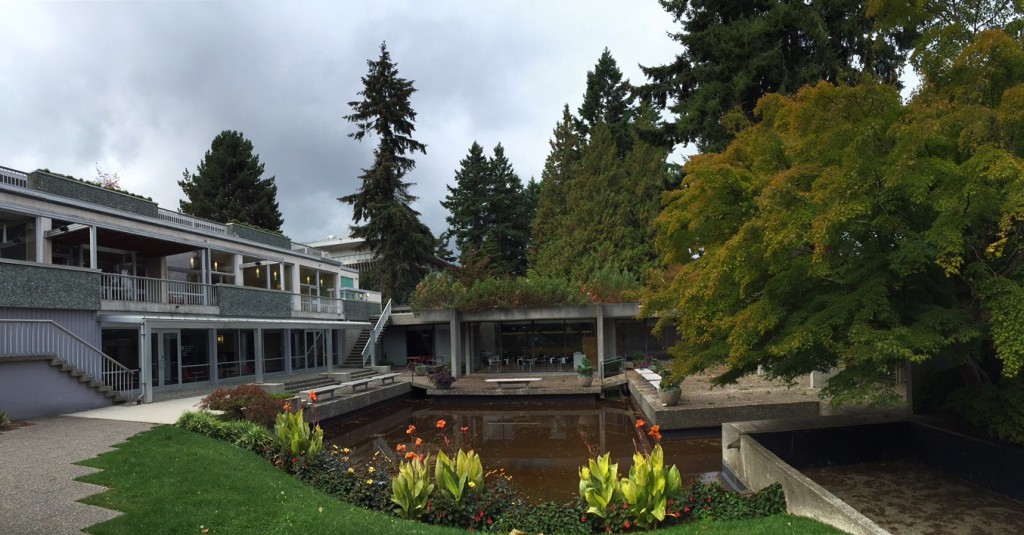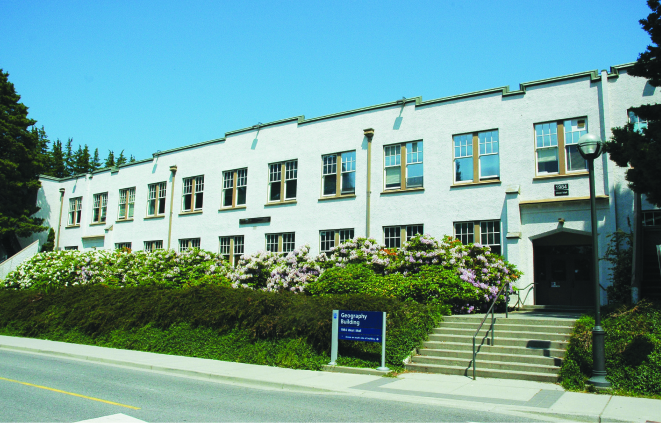This past May 27-29, some 38 scholars from UBC and around the world participated in the Peter Wall Institute for Advanced Studies (PWIAS) International Research Roundtable entitled “Geopolitical Economies of Development and Democratization in East Asia,” for which Jamie Peck and I served as co-investigators. The roundtable grew in part out of ongoing collaboration between myself, Professor Bae-Gyoon Park of Seoul National University, and Professor Jinn-yuh Hsu of National Taiwan University. We have been working with a loosely organized network of researchers (both professors and graduate students), primarily from East Asia, within what we informally call the “East Asian Geopolitical Economy Research Network.” There have been to date several meetings and workshops involving members of this network, including two in Seoul, and the PWIAS International Research Roundtable here at UBC’s Green College Coach House—funded very generously by Wall and also by SSHRC—was the latest installment of these meetings.
The purpose of the PWIAS roundtable was also to expand somewhat the geographic reach and number of participants in the network, an effort in which we were successful. Thematically, one of the main purposes was to explore the concept of geopolitical economy (GPE) and to investigate—in part through case studies and in part through theoretical work—the ways that specific concepts of GPE as an approach to research might either help or hinder our understanding of East Asian development. The range of papers and presentations for the roundtable—including both a variety of approaches to GPE and some approaches critical of GPE—pushed forward that agenda.
We were fortunate in organizing the roundtable to be able to bring in a long list of excellent keynote speakers, whose talks provided a focus for specific sections of the roundtable and the papers being presented in those sections. These keynote addresses—by Bob Jessop, Distinguished Professor of Sociology at the University of Lancaster, Garry Rodan, Australian Professorial Fellow and Professor of Politics and International Studies at the Asia Research Centre of Murdoch University, Ngai-Ling Sum, Reader in Cultural Political Economy in the Department of Politics, Philosophy, and Religion at the University of Lancaster, Helga Leitner, Professor in the Department of Geography at UCLA, Eric Sheppard, Humboldt Chair and Professor in the Department of Geography at UCLA, and Bruce Cumings, Gustavus F. and Ann M. Swift Distinguished Service Professor in History at the University of Chicago—are available as video (Cumings) or audio files (all others), at the roundtable website (http://geopolecon.pwias.ubc.ca/public-events).
In addition to these keynote addresses there were twenty paper presentations (see http://geopolecon.pwias.ubc.ca/abstracts-0) by scholars from Australia, Canada, Germany, Hong Kong, Japan, New Zealand, Singapore, South Korea, Taiwan, the UK, and the US. Overall, this made for a very rich—and tiring—three days. (One participant generated hearty laughter from the audience with a reference to “the Glassman death march”!)
The proceedings were helped enormously by the work of our Research Assistants (RAs), Szu-Yun Hsu, Mike Krebs, and Debolina Majumder, who not only played central roles in the logistical preparations but participated as discussants in the roundtable sessions. In addition, we were able to schedule a number of activities linked to the workshop—largely through the efforts of the RAs—such as a workshop for UBC Geography graduate students on field research challenges, led by Helga Leitner and Eric Sheppard, and field trips around UBC (the “Land Beneath our Feet” tour of UBC led by Spencer Lindsay) and the Vancouver downtown eastside (a tour of the gentrification process led by Ivan Drury). Particularly for the large contingent of scholars from Japan, South Korea, and Taiwan who intensively study urbanization, the Vancouver downtown eastside tour was particularly eye-opening—indeed, I think it was for all of us.
Along with those already mentioned, a number of people helped us make the roundtable a success by doing things ranging from arranging room bookings and ordering food to helping the participants with a whole range of issues. I’d like especially to thank Bernadette Mah at PWIAS, Rosa Park and Hanbyul Shim for recording the keynote addresses, and our own Sandy and Mimi for the considerable extra work they took on to help out with the event. The geopolitical economy of international roundtable events is both extensive and intensive!
By Professor Jim Glassman
Photo by Mimi Yu



